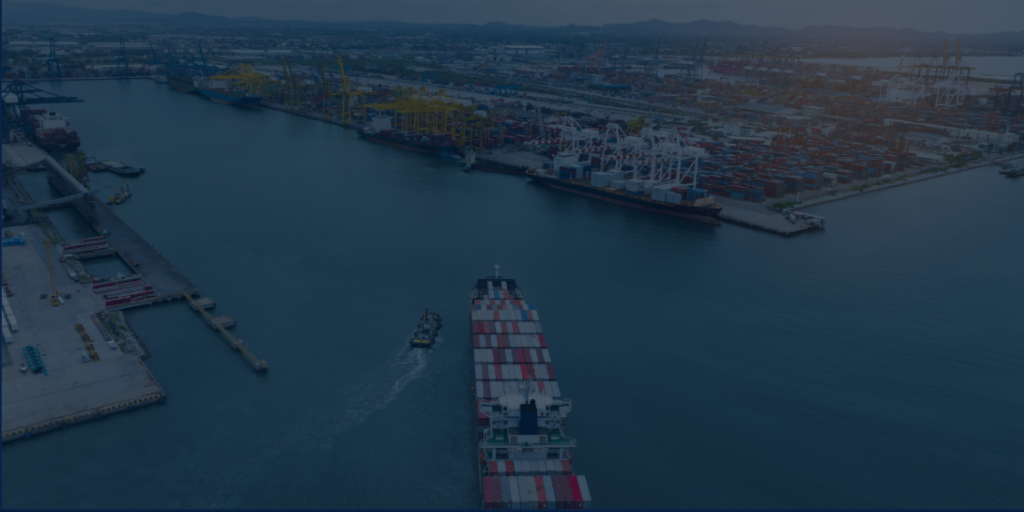Riding The Wave of Growth: The Booming Transportation Management System Market
The global transportation management system (TMS) market is surging with strong momentum. Valued at USD 13.61 billion in 2023, it's on track to...
2 min read
FreightPOP : Aug 27, 2024
.png)
Offering quality products is crucial for any eCommerce business, but it’s no longer enough to stand out in a crowded marketplace. Over the past few years, consumer priorities have shifted significantly. Research shows that 24% of online shoppers are more likely to make repeat purchases from a brand that provides shipment tracking. This feature allows customers to plan their day without the stress of waiting around for their packages, enhancing their overall shopping experience.
In today’s digital age, consumers have access to a vast array of products and services at their fingertips. This ease of access has heightened their expectations. Quality products are still important, but the overall shopping experience now plays a crucial role in driving customer loyalty. Shipment tracking has emerged as a key element in meeting these elevated expectations.
Imagine placing an order online. The excitement of receiving a new product is often tempered by the anxiety of not knowing when it will arrive. Shipment tracking alleviates this uncertainty by providing real-time updates and estimated delivery dates, allowing customers to plan their schedules around the arrival of their package. This transparency not only enhances the shopping experience but also builds trust between the retailer and the customer.
Shipment tracking plays an essential role in the shipping and logistics industry by providing stakeholders with vital information about their merchandise while it is in transit. This capability is indispensable for maintaining operational efficiency and ensuring customer satisfaction. Let’s explore why shipment tracking is so important and how it enhances various aspects of the logistics process.
One of the primary benefits of shipment tracking is its ability to offer real-time visibility into the progress and location of shipments. For shipping companies, this visibility is crucial for accurately monitoring the status of each delivery. Real-time tracking enables these companies to pinpoint the exact location of a shipment at any given moment, providing a clear picture of its journey from departure to destination. This level of detail is invaluable for managing logistics, coordinating with carriers, and ensuring that shipments stay on schedule.
Moreover, when issues arise—such as delays due to weather conditions, traffic, or logistical challenges—real-time tracking allows shipping companies to take proactive measures. By identifying potential problems early, they can implement solutions to minimize disruptions. For instance, if a shipment is delayed, the company can reroute it, adjust delivery schedules, or communicate with the customer to manage expectations. This proactive approach helps mitigate the impact of delays and improves overall service reliability.
Live shipment tracking significantly improves the supply chain management process. Both buyers and sellers benefit from enhanced visibility into transit times and the status of their shipments. For buyers, having access to detailed tracking information reduces uncertainty and allows for better planning. They can monitor the estimated delivery date and time, adjust their schedules accordingly, and avoid unnecessary waiting periods.
For sellers, shipment tracking offers valuable insights into the efficiency of their logistics operations. By analyzing tracking data, sellers can identify potential bottlenecks in the supply chain, such as delays at specific stages or issues with particular carriers. This information enables sellers to make informed decisions about optimizing their operational processes. For example, if a seller notices frequent delays from a specific shipping route, they can explore alternative routes or carriers to improve delivery times.
Shipment tracking is a cornerstone of modern shipping and logistics operations. It provides stakeholders with real-time visibility into the status and location of shipments, enabling proactive management of potential issues and enhancing overall service reliability. By improving the supply chain management process, driving efficiency, and increasing cost-effectiveness, shipment tracking plays a crucial role in optimizing logistics operations and ensuring a seamless experience for both buyers and sellers. For shipping companies, embracing advanced shipment tracking solutions is not just an option but a necessity for staying competitive and meeting the ever-evolving demands of the industry.
.png)
The global transportation management system (TMS) market is surging with strong momentum. Valued at USD 13.61 billion in 2023, it's on track to...

As supply chains grow more complex and customer expectations continue to rise, disconnected systems introduce friction, delay critical decisions, and...

Many freight shippers believe they have visibility because they can track shipments. In reality, tracking alone often leaves teams reacting to...